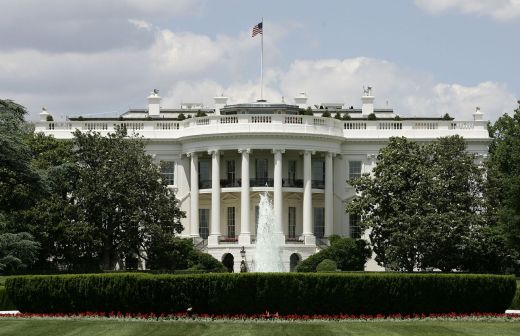Center for Education Reform releases 100-day action plan for Trump team

The Center for Education Reform is urging the Trump administration during its first 100 days to redirect spending, reimagine teaching, increase school choice and make higher education more accessible and innovative.
The pro-charter school group presented its agenda this month for an Education Department under President Trump – citing spending, teaching, higher education and educational choice as pillars of growth and reinvention for the new administration.
The group makes a number of recommendations, including making greater use of technology to access teachers in other states and countries.
In terms of federal spending, the group advises that a new commission be established to determine how every dollar is spent on education, and how it helps students achieve.
CER also floats the idea that the teaching profession could be opened up to “subject matter experts,” or underemployed individuals who need jobs and could create a much-needed stopgap to the national teacher shortage. The CER’s report foresees a shortage of 100,000 teachers by
2020.
According to the report, “there is an abundance of individuals seeking employment in positions offering lower wages, fewer benefits and less security as a means of survival.”
If education stakeholders were open to reviewing and changing teacher licensing requirements, trained and credentialed former manufacturing and technology workers could potentially fill open jobs in schools as teachers and mentors.
“Today’s students need an education rooted less on theory and more on hands-on experiential education,” the report notes. “The gateway to a meaningful education for many students could be provided by a legion of former employees in technology and manufacturing fields.”
The report poses another solution to this issue by making use of technology to access teachers in other states and countries.
“A great math teacher in Singapore could address a math teacher deficiency or absence via a cheap or free Zoom videoconference,” the report states.
A different higher-ed market
The report says higher education should also be retooled, from exorbitantly expensive institutions of learning to a nontraditional education “market” featuring new online schools and competency-based boot camps that teach particular skills. The report says colleges and universities are stifled by strings attached to federal grants, and should be open to allowing students to follow a more unconventional path.
“Hundreds of thousands of credible universities have created and offer online classes to students unable to afford college,” according to the report. “Efforts to award credit for proven mastery in those classes are often scoffed at, and federal funds do not flow to students who might take on numerous courses at once, but go instead to institutions that do not want to accept such classes for fear of losing money.”
The report notes that these issues should be debated during the reauthorization of the Higher Education Act this year. “There should be ways by which the federal government can recognize alternative higher education delivery and the accumulation of real coursework and mastery,” according to the analysis.
According to the agenda, the federal government should also prioritize and expand support for digital education by partnering with agencies that oversee telecommunications and transportation to “drive the digital super highway further into rural communities and thus permit them to access the best of education that currently escapes their remote areas, via technology.”
The report’s authors implore the Trump administration to redefine permissible use of federal funds to include nontraditional programs like the ones they outlined. While specific education initiatives remain unclear under Trump, his pick for Education secretary, Betsy DeVos, she said repeatedly in her confirmation hearing this week that she believes important issues should be left up to states and “locales,” not the federal government.
Jeanne Allen, founder and CEO of CER, said it is imperative that Trump uses his first 100 days in office to set a framework for how the federal government will steer education dollars and programs to schools.
“This is an historic opportunity for the Department of Education to redefine the focus and effectiveness of the federal government’s role in education,” Allen said. “‘The First 100 Days’ lays out an assertive plan of action that can truly launch a revolution in education.
“To that end, we respectfully urge the Trump-Pence Administration to use its first 100 days to launch initiatives that will serve as the basis for programs that provide students with access to truly exceptional education at all levels, and that will pave the way for the U.S. to begin to realize a fair return, in terms of value, on its enormous financial investment in education.”
Reach the reporter at corinne.lestch@edscoop.com and follow her on Twitter @clestch and @edscoop_news.





